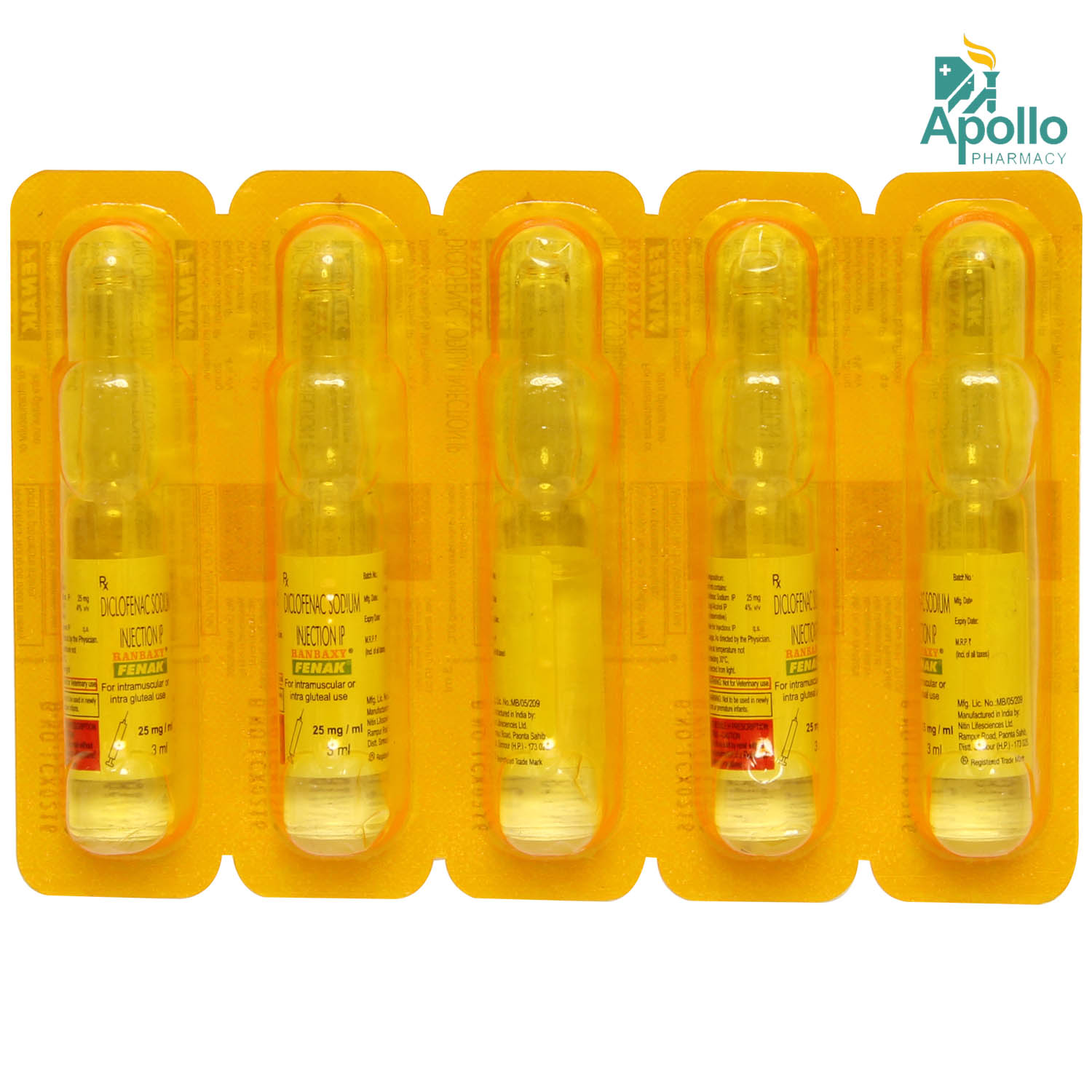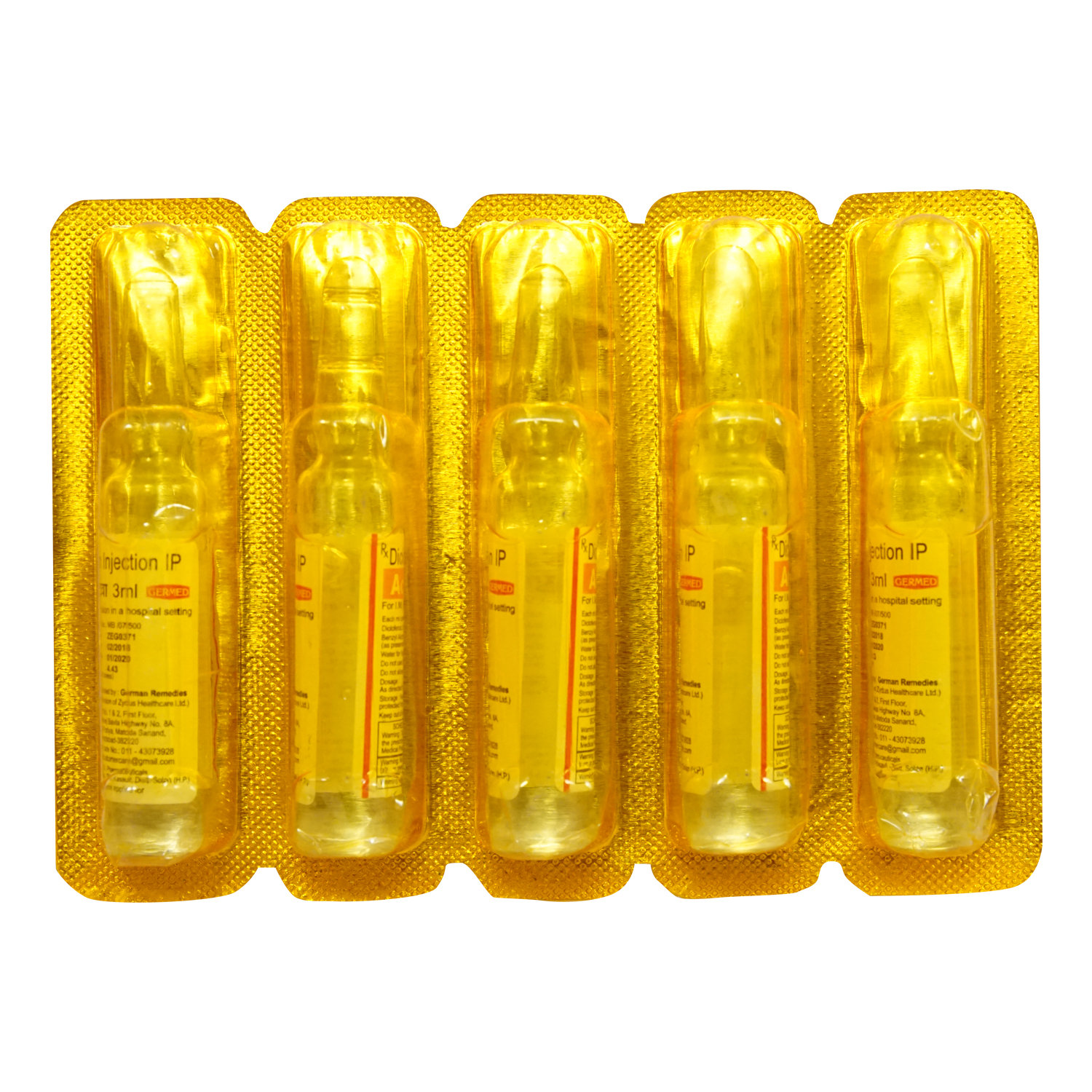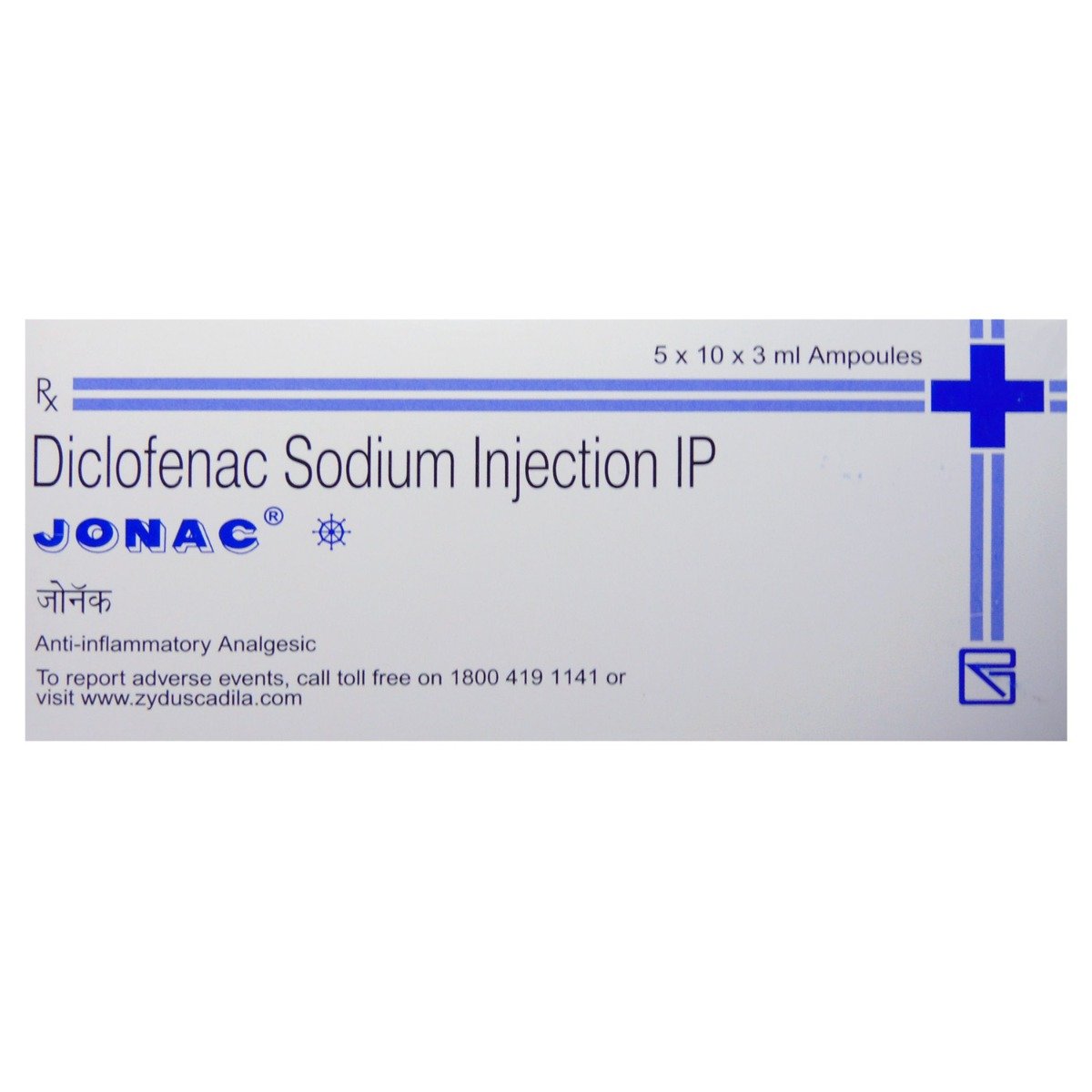3D FLAM 25MG INJECTION 3ML

MRP ₹5
(Inclusive of all Taxes)
₹0.8 Cashback (15%)
know your delivery time
Provide Delivery Location
Composition :
Manufacturer/Marketer :
Consume Type :
Expires on or after :
Return Policy :

Secure Payment

Trusted by 8 Crore Indians

Genuine Products
Therapeutic Class
Country of origin
Manufacturer/Marketer address
Author Details
We provide you with authentic, trustworthy and relevant information
Disclaimer
Alcohol
Safe if prescribed
It is not known if alcohol affects 3D FLAM 25MG INJECTION 3ML. Please consult your doctor for more information. However, limiting alcohol consumption is recommended while on treatment with 3D FLAM 25MG INJECTION 3ML.
Pregnancy
Consult your doctor
3D FLAM 25MG INJECTION 3ML is not recommended for use in the last three months of pregnancy as it may harm the unborn child or cause problems at delivery. Hence, if you are pregnant or planning pregnancy, inform your doctor before receiving 3D FLAM 25MG INJECTION 3ML. Your doctor may prescribe this medicine if the benefits outweigh the risks.
Breast Feeding
Consult your doctor
If you are breastfeeding, inform your doctor before receiving 3D FLAM 25MG INJECTION 3ML. Your doctor may prescribe this medicine if the benefits outweigh the risks.
Driving
Safe if prescribed
Occasionally, 3D FLAM 25MG INJECTION 3ML may cause dizziness and tiredness. Drive or operate machinery only if you are alert.
Liver
Consult your doctor
If you have a history of liver disease, inform your doctor before receiving 3D FLAM 25MG INJECTION 3ML. Your doctor may adjust the dose of this medicine or prescribe a suitable alternative based on your condition.
Kidney
Consult your doctor
If you have a history of kidney diseases, inform your doctor before receiving 3D FLAM 25MG INJECTION 3ML. Your doctor may adjust the dose of this medicine or prescribe a suitable alternative based on your condition.
Children
Safe if prescribed
3D FLAM 25MG INJECTION 3ML is not recommended for children.
Product Substitutes
About 3D FLAM 25MG INJECTION 3ML
3D FLAM 25MG INJECTION 3ML belongs to a group of medicines called Non-Steroidal Anti-Inflammatory Drugs (NSAID) used to relieve pain in conditions such as flare-ups of joint and back pain, attacks of gout, pain caused by gall stones, kidney stones, injuries, trauma, fractures and pain following surgery.
3D FLAM 25MG INJECTION 3ML contains ‘Diclofenac’, which works by inhibiting the synthesis of certain chemical messengers which are responsible for causing pain and inflammation. Thereby, 3D FLAM 25MG INJECTION 3ML helps provide relief from pain.
3D FLAM 25MG INJECTION 3ML may cause common side effects such as stomach pain, nausea, vomiting, heartburn, and injection site reactions. Most of these side effects do not require medical attention and will resolve gradually over time. However, you are advised to talk to your doctor if the side effects persist or worsen.
3D FLAM 25MG INJECTION 3ML is not recommended during the last three months of pregnancy and for children. Inform your doctor if you are pregnant or breastfeeding before receiving this injection. Keep your doctor informed about your health condition and ongoing medicines to rule out any side effects/interactions.
Uses of 3D FLAM 25MG INJECTION 3ML
Medicinal Benefits Mweb
Key Benefits
3D FLAM 25MG INJECTION 3ML belongs to a group of medicines called Non-Steroidal Anti-Inflammatory Drugs (NSAID) used to relieve pain in conditions such as flare-ups of joint and back pain, attacks of gout, pain caused by gall stones, kidney stones, injuries, trauma, fractures and pain following surgery. 3D FLAM 25MG INJECTION 3ML contains ‘Diclofenac’, which works by inhibiting the synthesis of certain chemical messengers responsible for causing pain and inflammation. Thereby, 3D FLAM 25MG INJECTION 3ML helps provide relief from pain.
Directions for Use
Side Effects of 3D FLAM 25MG INJECTION 3ML
- Injection site reactions
- Stomach pain
- Heartburn
- Nausea
- Vomiting
Drug Warnings
Do not take 3D FLAM 25MG INJECTION 3ML if you are allergic to any of its components; if you have/had gastric/peptic ulcer, active gastrointestinal bleeding, or coronary artery bypass graft surgery. Inform your doctor if you have/had heart problems, liver or kidney problems, heart attack, stroke, blood circulation problems, bowel disorders, bleeding problems, asthma, porphyria, angina, high blood pressure, high levels of fat, diabetes, or Lupus. Consult your doctor if you are pregnant or breastfeeding. Let your doctor know if you are taking any other medicines or supplements. NSAIDs may increase the risk of cardiovascular events, stroke, myocardial infarction, gastrointestinal bleeding, perforation, and ulceration. Hence, caution should be exercised.
Drug-Drug Interactions
Drug-Drug Interactions
Login/Sign Up
Co-administration of 3d Flam 25mg Injection 3ml with Meloxicam can increase the risk or severity of gastrointestinal side effects.
How to manage the interaction:
Taking Meloxicam with 3d Flam 25mg Injection 3ml is not recommended as it can possibly result in an interaction, it can be taken if your doctor has advised it. However, consult your doctor immediately if you experience symptoms such as dizziness, lightheadedness, red or black, tarry stools, coughing up or vomiting fresh or dried blood that looks like coffee grounds, severe headache, and weakness. Do not stop any medication without doctor's advise.
Taking 3d Flam 25mg Injection 3ml with Enoxaparin can increase the risk of bleeding complications.
How to manage the interaction:
There may be a possible interaction between 3d Flam 25mg Injection 3ml and Enoxaparin, but they can be taken together if your doctor has prescribed them. However, consult your doctor immediately if you experience any unusual bleeding or bruising, swelling, vomiting, blood in your urine or stools, headache, dizziness, or weakness. Do not discontinue any medications without consulting a doctor.
Coadministration of 3d Flam 25mg Injection 3ml with Ketoconazole may increase the risk of liver problems.
How to manage the interaction:
There may be a possible interaction between 3d Flam 25mg Injection 3ml and Ketoconazole, but they can be taken together if a doctor has prescribed them. However, consult a doctor immediately if you have fever, chills, joint pain or swelling, unusual bleeding or bruising, skin rash, itching, loss of appetite, fatigue, nausea, vomiting, abdominal pain, dark colored urine, light colored stools, and/or yellowing of the skin or eyes. Do not discontinue any medications without consulting a doctor.
Taking 3d Flam 25mg Injection 3ml with human immunoglobulin may increase the risk of kidney problems.
How to manage the interaction:
Although there is an interaction between Human immunoglobulin and 3d Flam 25mg Injection 3ml, you can take these medicines together if prescribed by a doctor. However, consult the doctor immediately if you experience symptoms such as nausea, vomiting, loss of appetite, increased or decreased urination, sudden weight gain or weight loss, fluid retention, swelling, shortness of breath, muscle cramps, tiredness, weakness, dizziness, confusion, and irregular heart rhythm. Do not discontinue any medications without consulting a doctor.
Taking 3d Flam 25mg Injection 3ml with Ibrutinib can increase the risk of bleeding tendencies.
How to manage the interaction:
There may be a possible interaction between 3d Flam 25mg Injection 3ml and Ibrutinib, but they can be taken together if a doctor has prescribed them. However, consult a doctor immediately if you experience any unusual bleeding, dizziness, lightheadedness, red or black, tarry stools, coughing up or vomiting fresh or dried blood that looks like coffee grounds, or severe headaches. Do not discontinue any medications without consulting a doctor.
Co-administration of 3d Flam 25mg Injection 3ml with Celecoxib may increase the risk of stomach bleeding and ulcers.
How to manage the interaction:
Although there is a interaction between 3d Flam 25mg Injection 3ml and Celecoxib, but it can be taken if your doctor has advised it. Consult a doctor if you experience symptoms like blood in your urine or stool (or a black stool), severe bruising, prolonged nosebleeds, feeling dizzy or lightheaded, weakness or severe headache, vomiting blood or coughing up blood, heavy menstrual bleeding (in women), difficulty breathing, or chest pain. Do not discontinue any medication without consulting a doctor.
Co administration of 3d Flam 25mg Injection 3ml with Leflunomide may result in liver problems.
How to manage the interaction:
Co-administration of 3d Flam 25mg Injection 3ml and Leflunomide can lead to an interaction; it can be taken if advised by your doctor. However, if you have a fever, chills, joint pain or swelling, unusual bleeding or bruising, skin rash, itching, loss of appetite, fatigue, nausea, vomiting, abdominal pain, dark-colored urine, light-colored stools, or yellowing of the skin or eyes. Do not stop using any medication without consulting your doctor.
Concomitant administration of 3d Flam 25mg Injection 3ml and furosemide may decrease the therapeutic efficacy of furosemide and adversely affect renal function.
How to manage the interaction:
There may be a possible interaction between 3d Flam 25mg Injection 3ml and furosemide, but they can be taken together if your doctor has prescribed them. However, consult your doctor immediately if you experience symptoms like nausea, dizziness, irregular heartbeats, altered blood pressure, tingling. Do not stop using any medications without first talking to your doctor.
Co-administration of 3d Flam 25mg Injection 3ml and tenofovir alafenamide may cause kidney problems.
How to manage the interaction:
There may be a possible interaction between 3d Flam 25mg Injection 3ml and Tenofovir alafenamide but they can be taken together if your doctor has prescribed them. However, consult your doctor immediately if you experience symptoms such as such as nausea, vomiting, loss of appetite, increased or decreased urination, sudden weight gain or weight loss, fluid retention, swelling, shortness of breath, bone pain, muscle cramps, tiredness, weakness, dizziness, confusion, and irregular heart rhythm. Do not stop using any medications without talking to your doctor.
Taking Dasatinib together with 3d Flam 25mg Injection 3ml may increase the risk of bleeding.
How to manage the interaction:
There may be a possible interaction between 3d Flam 25mg Injection 3ml and Dasatinib but they can be taken together if a doctor has prescribed them. However, consult a doctor immediately if you experience dizziness, red or black, tarry stools, or severe headaches. Do not discontinue any medications without consulting a doctor.
Drug-Food Interactions
Drug-Food Interactions
Login/Sign Up
Drug-Diseases Interactions
Drug-Diseases Interactions
Login/Sign Up
Drug-Drug Interactions Checker List
- WARFARIN
- LITHIUM
- METHOTREXATE
- CICLOSPORIN
- TACROLIMUS
- TRIMETHOPRIM
- MIFEPRISTONE
- VORICONAZOLE
- PHENYTOIN
- CHOLESTYRAMINE
Habit Forming
Diet & Lifestyle Advise
- Exercising regularly helps in muscle stretching so that they are less likely to spasm, tear and sprain. Mild exercises such as jogging and walking are helpful for muscle stretching.
- Massages can also be helpful.
- Avoid freezing and hot temperatures.
- Avoid wearing tight-fitting clothes; instead, wear loose garments.
- Rest and sleep well.
- To avoid developing pressure sores, change your position at least every two hours.
- Stay hydrated, and drink plenty of water.
All Substitutes & Brand Comparisons
RX
Out of StockGlygesic 25mg Injection
Torque Pharmaceuticals Pvt Ltd
₹2.37
(₹0.71/ 1ml)
52% CHEAPERRX
Out of StockClofenak 25mg Injection
Sterkem Pharma Pvt Ltd
₹4.76
(₹1.43/ 1ml)
4% CHEAPERRX
Out of StockArgesic 25mg Injection
Centaur Pharmaceuticals Pvt Ltd
₹4.86
(₹1.46/ 1ml)
2% CHEAPER

Have a query?
Buy best C.n.s Drugs products by
Intas Pharmaceuticals Ltd
Sun Pharmaceutical Industries Ltd
Torrent Pharmaceuticals Ltd
Alkem Laboratories Ltd
Abbott India Ltd
Cipla Ltd
Alteus Biogenics Pvt Ltd
Micro Labs Ltd
Lupin Ltd
Ipca Laboratories Ltd
D D Pharmaceuticals Pvt Ltd
Icon Life Sciences
Mankind Pharma Pvt Ltd
Tripada Healthcare Pvt Ltd
Arinna Lifesciences Ltd
Linux Laboratories Pvt Ltd
East West Pharma India Pvt Ltd
La Renon Healthcare Pvt Ltd
Talent India Pvt Ltd
Tas Med India Pvt Ltd
Zydus Healthcare Ltd
Cnx Health Care Pvt Ltd
Eris Life Sciences Ltd
Leeford Healthcare Ltd
Emcure Pharmaceuticals Ltd
Macleods Pharmaceuticals Ltd
Sigmund Promedica
Aristo Pharmaceuticals Pvt Ltd
Dr Reddy's Laboratories Ltd
Troikaa Pharmaceuticals Ltd
Consern Pharma Ltd
Zydus Cadila
Shine Pharmaceuticals Ltd
Wockhardt Ltd
Ardent Life Sciences Pvt Ltd
Crescent Formulations Pvt Ltd
Theo Pharma Pvt Ltd
Reliance Formulation Pvt Ltd
Ikon Pharmaceuticals Pvt Ltd
Propel Healthcare
Neon Laboratories Ltd
Jagsam Pharma
Msn Laboratories Pvt Ltd
Morepen Laboratories Ltd
Pulse Pharmaceuticals
Sanofi India Ltd
Med Manor Organics Pvt Ltd
Hetero Healthcare Pvt Ltd
Novartis India Ltd
Crescent Therapeutics Ltd
Elder Pharmaceuticals Ltd
Solvate Laboratories Pvt Ltd
Akumentis Healthcare Ltd
Mova Pharmaceutical Pvt Ltd
Psyco Remedies Ltd
Tripada Lifecare Pvt Ltd
Ajanta Pharma Ltd
Cyrus Remedies Pvt Ltd
Medishri Healthcare Pvt Ltd
Cadila Healthcare Ltd
Glenmark Pharmaceuticals Ltd
Matteo Health Care Pvt Ltd
Hbc Life Sciences Pvt Ltd
Lyf Healthcare
Matias Healthcare Pvt Ltd
Mesmer Pharmaceuticals
Alembic Pharmaceuticals Ltd
Capital Pharma
Crescent Pharmaceuticals
Medopharm Pvt Ltd
Alniche Life Sciences Pvt Ltd
Kivi Labs Ltd
Talin Remedies Pvt Ltd
USV Pvt Ltd
Quince Lifesciences Pvt Ltd
Solis Pharmaceuticals
Infivis Life Care
Zuventus Healthcare Ltd
Cadila Pharmaceuticals Ltd
Pfizer Ltd
Wallace Pharmaceuticals Pvt Ltd
A N Pharmacia Laboratories Pvt Ltd
Blue Cross Laboratories Pvt Ltd
Jenburkt Pharmaceuticals Ltd
Lia Life Sciences Pvt Ltd
Mano Pharma
Medley Pharmaceuticals Ltd
Primus Remedies Pvt Ltd
FDC Ltd
Maneesh Pharmaceuticals Ltd
Apex Laboratories Pvt Ltd
Gagnant Healthcare Pvt Ltd
Ozone Pharmaceuticals Ltd
RPG Life Sciences Ltd
Strides Shasun Ltd
Unichem International
GlaxoSmithKline Pharmaceuticals Ltd
Kuresys Labs Pvt Ltd
LA Pharma
Trion Pharma India Llp

_0.jpg?tr=q-85)






